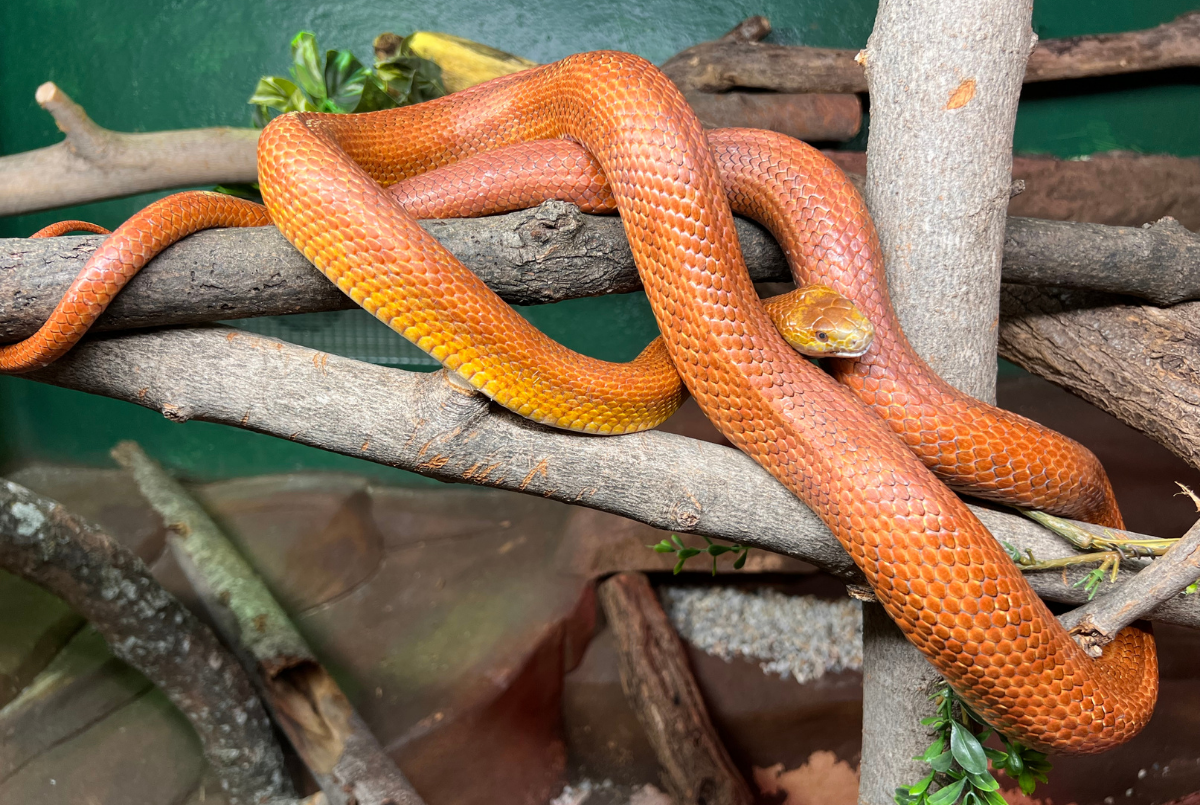Everglades Rat Snake

Basic Information:
Scientific Name: Pantherophis alleghaniensis
Habitat: Everglades rat snakes are found throughout the farmlands, forests, and wetlands of Florida, particularly in the Everglades National Park.
Diet: Everglades rat snakes eat rodents, lizards, frogs, and birds and their eggs.
Size: 3 to 5 feet long
Weight: 1 to 5 pounds
Lifespan: 10 to 15 years in the wild. Up to 30 years in human care.
Distribution Map:
I.U.C.N. Conservation Status:

What does this mean?
Least Concern – a species determined by the International Union for Conservation of Nature (I.U.C.N.) to be pervasive, abundant, and thriving.
Our Everglades Rat Snake:
Mango – Estimated Date of Birth Between 2005 & 2007
About Everglades Rat Snakes:
Exclusively found in the marshes of the Florida Everglades, this species of Rat Snake is one of the largest snakes native to North America. They are capable of navigating their habitat adeptly, from the tree tops to burrows to – when needed – swimming through the water. They are a constrictor snake and have no venom, and they particularly feed on most of the small to moderately sized animals that they can find. While they are known for being a little aggressive when startled, they are also known for being very calm once they get used to their surroundings. Because of this, Everglades Rat Snakes make great ambassador animals.
Did You Know?!
- Everglades rat snakes typically sun themselves by day and hunt for prey at night.
- Everglades rat snakes are excellent climbers that are often found up in trees.
- Everglades rat snakes are also skilled swimmers, slipping into the water when alarmed to escape danger.
- Everglades rat snakes are non-venomous. When frightened they will vibrate their tail and expel a musk to scare of predators.
- Everglades rat snakes have been known to hybridize with the gray rat snake in the panhandle west of the Apalachicola river.
- Black/Eastern rat snakes and yellow rat snakes also exist. Black rat snakes being found everywhere from Connecticut to South Carolina and west to the middle of Kansas and Oklahoma.
